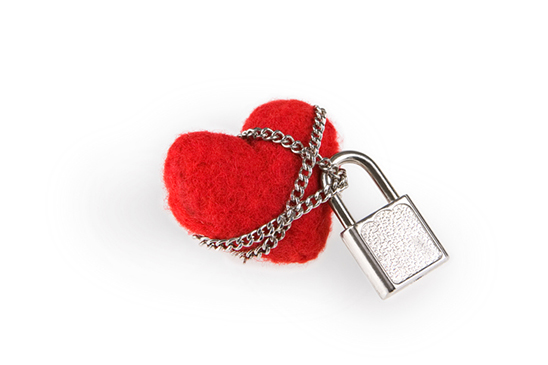This might sound familiar:
You’ve created a profile on a dating site or app, hoping to meet someone special.
Someone catches your attention, or reaches out to strike up a conversation with you. Either way, they quickly show interest in your personal life.
Soon, they start recommending investments or trading in cryptocurrencies. They may also offer to teach you how to invest, or to help you with your investment accounts.
It may seem harmless enough, even flattering – they are offering to help you make some money and get ahead. But the person behind the keyboard or phone may not be who you think they are. And they could be trying to lead you into a romance scam.
Let’s take a closer look at some common tactics used by fraudsters who run investment-focused romance scams, and ways to help you, or someone you care about, from becoming a target.
What You Should Know About Romance Scams
Romance scammers lure victims into false or misleading relationships, often with the intention to steal money or commit other types of fraud, including investment fraud.
Yes, it really happens. And it can happen to anyone.
Canadians Have Lost Millions to Romance Scammers
According to the Canadian Anti-Fraud Centre (CAFC), Canadians reported more than $70.2 million dollars in losses to investment scams between September and January 2021, and $42.2 million to all types of romance scams. The CAFC estimates that less than 5% of victims report fraud, meaning the financial and emotional damage could be much higher across the country.
Fraudsters Use Dating Sites to Run Crypto Asset Scams
In November 2021, the BC RCMP, BC Securities Commission, CAFC and municipal police issued a warning about an emerging trend of fraudsters using social media and online dating sites to lure BC residents into crypto asset scams.
In the first eight months of 2021, British Columbians reported losses of $3.5 million from crypto investment scams – more than triple the amount lost in 2020, which was just over $1 million, according to CAFC data.
How Romance Scams Typically Work
Romance fraud or online dating scams come in many forms, including investment offers. Typically, there are common moves fraudsters will make to find targets.
1. Set Up a Dating Site Profile or Use Social Media:
Fraudsters will create accounts on legitimate dating apps and social media websites. They’ll construct fake profiles and personas by using stock photos or stealing someone’s identity. They may also use social media to do research on someone in order to target them directly, or take over the social media account of a someone’s close friend to increase their chances of catching them with their guard down.
2. Establish a Target:
Fraudsters may initiate a conversation over social media or a dating app, or they may sit back and wait for someone to match with their fake dating profile. Once the target is established, they turn on the charm.
3. Build Trust:
A romance scam target will likely receive a constant stream of affectionate emails, texts, or direct social media messages. This can go on for weeks before the scammer asks a person to invest or give them money. They do this to build interest, attachment, and trust. Fraudsters know how to play on a person’s vulnerabilities and emotions, like loneliness or desire to meet a soulmate, to get them to let their guard down.
4. Request Finances:
Eventually, at some point, the fraudster will bring up finances or business. It could be a broad range of scenarios – business struggles, investment opportunities, or advice on new trends, like cryptocurrencies. Often, with an investment scam, it relates to a popular investing trend that is being talked about in the news or online. They may also offer to help you with your investment or banking accounts, hoping you will give them online access or share the login information to your bank or investment accounts.
Warning Signs of a Telltale Romance Scam

These are some of the common lies that romance scammers will tell to build trust with their victims.
1. They Cannot Meet You in Person
Sometimes fraudsters claim to live nearby, but they can’t meet face-to-face because they’re currently not in the country. Often they’ll come up with a profession that justifies why they’re overseas. Common jobs can include working on oil rigs, deployed in the military, working for a multinational company, or employed as a medical professional in a foreign country.
2. They Avoid Video Chats
In many cases, a scammer will mask their real identity by using stock photos or photos stolen from someone else’s profile. A video call could quickly compromise their fake persona. To avoid a video chat, fraudster will use excuses like they have a bad accent or they feel more comfortable texting in English. If they do decide to hop on a video call, they may try to mask their identity by not appearing directly on camera.
3. They Tend to Fall in Love Quickly
Romance fraudsters need to build trust and affection with their victims. Often, fraudsters will profess their love early on in relationships and flood you with affectionate messages. This is also known as “love bombing.” They also tend to rush talks centering around big life events, like marriage and children, before even trying to meet in person.
4. They Steer the Conversation Toward Finances or Crypto Assets
Once empathy and attachment begins to form in relationships, romance fraudsters may ask for money. This could happen in various ways. A fraudster might say:
- They have a lucrative investment opportunity lined up and want you to be part of it
- They offer opportunities with new financial or complex products, like cryptocurrencies or non-fungible tokens (NFTs)
- Their business is struggling financially
- They have considerable assets in another country, but need money to get them out
Examples of Real Romance Scams
It’s important to be aware that even if you meet someone in person, they might not be who they claim they are. Victims across Canada have shared stories of being scammed after meeting a romantic partner in real life.
Man Loses Hundreds of Thousands in International Crypto Scam
 A Montreal man lost nearly $400,000 after a woman he met online encouraged him to start investing in a well-known cryptocurrency. He met the woman, who claimed to be from China, on a social media dating site. They would exchange messages and photos daily on a popular messaging app to communicate, but the woman discouraged video calls.
A Montreal man lost nearly $400,000 after a woman he met online encouraged him to start investing in a well-known cryptocurrency. He met the woman, who claimed to be from China, on a social media dating site. They would exchange messages and photos daily on a popular messaging app to communicate, but the woman discouraged video calls.
After a couple of months, the woman recommended a cryptocurrency website to him and he invested $2,000. He continued to invest, eventually putting in all of his life savings from the sale of his house. When he tried to withdraw his money from the site, he was told there was a tax on his “profits” of $192,000. The woman became hostile when he asked for help, and suggested he go to friends and family for more money.
Key Warning Signs
- The woman discouraged face-to-face meetings over video chat
- She encouraged him to invest in a website that she introduced
- When he tried to withdraw his money, he was encouraged to invest even more
This type of scam has really taken hold during the COVID-19 pandemic due to the rapid rise in popularity of cryptocurrencies, combined with more people going online to find romantic partners. Here’s another story of two Ontario women who spoke out about their experiences.
A Group of Women Hunt for an Alleged Con Man
Women across Canada claiming they were duped in romance schemes by the same alleged fraudster have banded together to try and track him down. One of the women says the man, known to her as Dre, met with her several times and said he wanted to build a life together. He asked her to deposit a cheque in her bank account and then transfer some of the funds to him. Later, she learned the cheque had bounced, leaving her nearly $20,000 in debt. “Dre” was gone too.
Key Warning Signs
- Some of the victims say the alleged con man had a similar back story – he claimed to be an overseas oil rig worker with considerable assets/money in Vietnam, but he needed money to go get them.
- The man professed his love quickly, promising a future together with several victims.
Maple Ridge Romance Fraudster Takes Thousands of Dollars from Victims
A number of victims came forward to say they suffered financial losses at the hands of a Maple Ridge man who pleaded guilty to various counts of fraud. One woman says she met the man through an online dating site before meeting in person. She says he convinced her to apply for, then max out, numerous credit cards. She reportedly lost more than $200,000 in the scam.
Key Warning Signs
- The fraudster sent the woman daily affectionate text messages.
- He talked about finances and offered a $30,000 return in exchange for a loan (although he claimed he came from a wealthy family).
You Could Be Pulled into an International Criminal Network
Scammers can be very sophisticated. They may coordinate with others around the world to operate schemes at a higher level. That means the personal and financial information you disclose to someone online can be shared within a global system. So, your love interest could actually be an entire network of scammers, and that could cause further financial and emotional devastation. This was the case in a romance scam involving a woman living in BC, which had tragic consequences.
How to Protect Yourself Against Romance Scams
When we trust people, we let our guard down. We don’t check the things we would normally look in to. This is what romance scammers (and other fraudsters) rely on to take your money. Protect yourself by following these steps:
1. Be Extremely Cautious When Meeting New People Online

- Never send money to invest based solely on someone’s advice you met on a social media app or dating app
- If a friend or former romantic partner is suddenly asking for money or trying to get you to invest, check in with that person offline by giving them a call or meeting them in-person. Someone may have hijacked one of their social media and/or online accounts.
2. Check That People are Who They Say They Are
- Drag their photographs into a Google reverse image search, to see if their image is being used by someone completely different or if it is a stock photo.
- Do online searches of the individual’s name and their company, including their name + scam. For example, “John Doe + scam”.
- Review the company website. Are there unfinished pages? Are there typos? Does it make sense? Copy and paste the website text into a search engine to see if it appears on other websites.
- Do a WhoIs search to see who the website is registered to, and check that person out.
- Suggest meeting them in-person in a safe and public place, and bring a friend you trust if possible. The friend doesn’t need to stick around, but it will give you a witness and an easy excuse to leave if you feel uncomfortable.
3. Do a Background Check on the Person or Website They’re Promoting
- Are they or the firm they are promoting registered to sell investments in British Columbia? Check the National Registration Database.
- Is the crypto-asset platform registered: Check the National Registration Database.
- Have they/their company been disciplined? Check the CSA’s Disciplined List.
- Has the investment been cease traded? Check the National Cease Trade Order Database.
- Is the website on the BCSC’s watch list? Check the Investment Caution List.
4. Ask Questions and Don’t Be Satisfied Until You Get Answers
- Ask for the documents that explain the investment. Does this investment include an offering memorandum or prospectus? If not, why not?
- Ask if the person is registered to sell securities or give investment advice? If not, why not?
- Ask why you are being pointed to a specific website or app to trade cryptocurrencies, forex, or other types of investments, rather than a registered, well-known platform.
- Ask why they need your private or financial information, like online banking account information or your credit card number.
5. Check Whether the Offer Makes Sense
Scammers know that you are too smart to be hooked by an offer that is too good to be true, so they will:
- Make it look like the investment is safe; for example, because there are assets or guarantees in place
- Attempt to convince you that they are investing and taking risks too, which are making them wealthy
- Apply pressure on you to invest quickly
- Try and override your gut instinct that something’s not quite right
6. Know the Fraud Warning Signs
Be on the lookout for these five fraud warning signs if you’ve been offered a suspicious investment opportunity:
- High Return | No Risk | Guaranteed Investments
- Pressure to Buy
- Fear of Missing Out
- Questions Not Answered
- Trust Trap
Key Takeaways

To recap, watch out for investment opportunities from someone who:
- Turns a romantic relationship into an opportunity to ask for money, or pitch investment opportunities
- Is not registered to sell investments
- Has been disciplined for securities law violations before
- Applies pressure for you to invest quickly
- Makes excuses for not meeting in-person
- Uses a stock photo or the same picture appears online with a different name
- Asks you to send copies of your ID or provide personal information - e.g. your social insurance number (SIN)
- Asks you to send money or provide bank account information
- Proposes marriage or says they love you before you have met in person
Additional Resource: Learn How to Spot Investment Scams
There are some common methods that fraudsters may use to lure people into investment schemes. Learn more about how to spot common scams by taking our free fraud e-mail course.
Report a Concern
If you have any concerns about a person or company offering an investment opportunity, please contact BCSC Contact Centre at 604-899-6854 or 1-800-373-6393 or through e-mail at [email protected]. You can also file a complaint or submit a tip anonymously using the BCSC’s online complaint form.
InvestRight.org is the BC Securities Commission’s investor education website. Subscribe to receive email updates from BCSC InvestRight.



